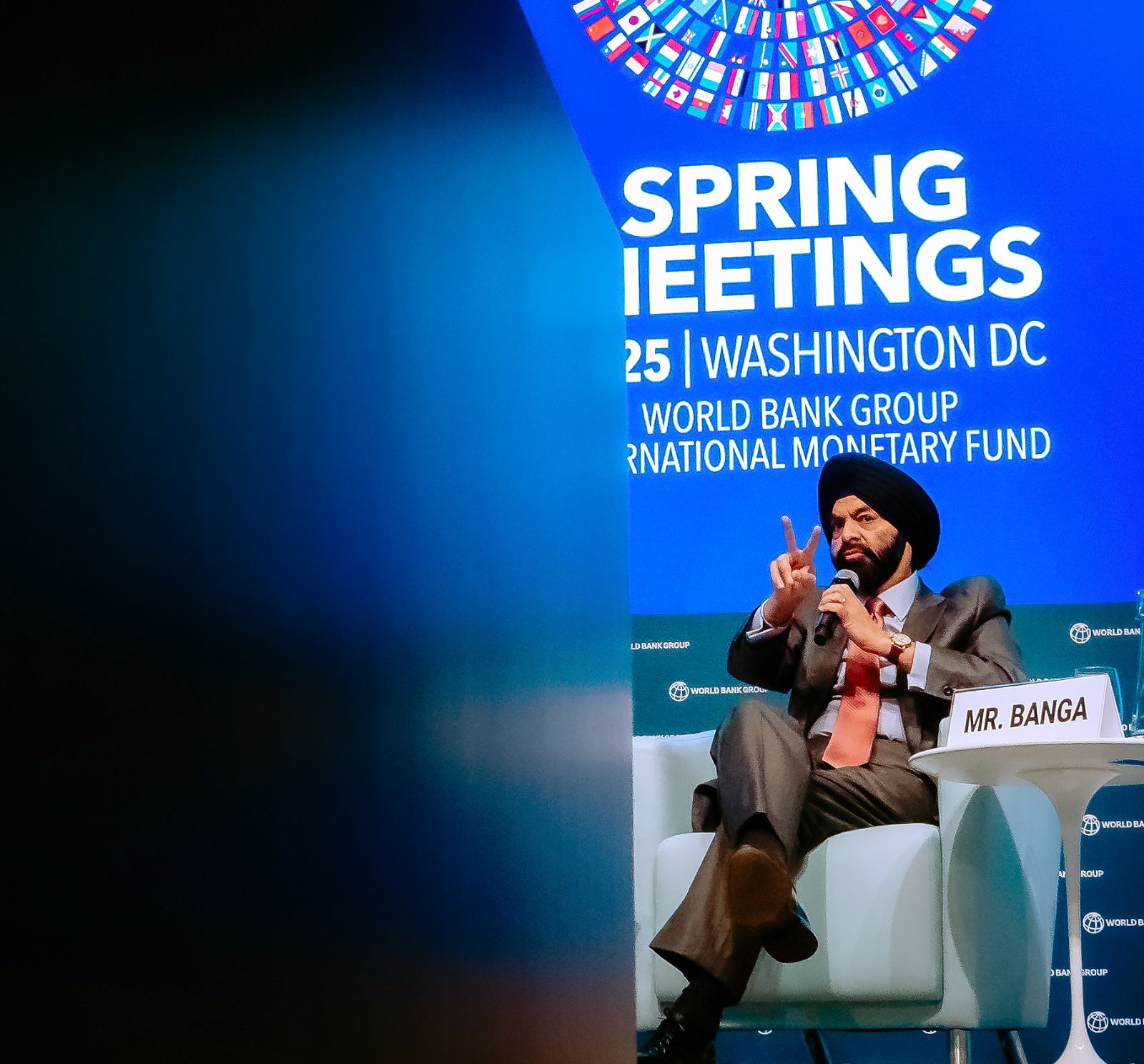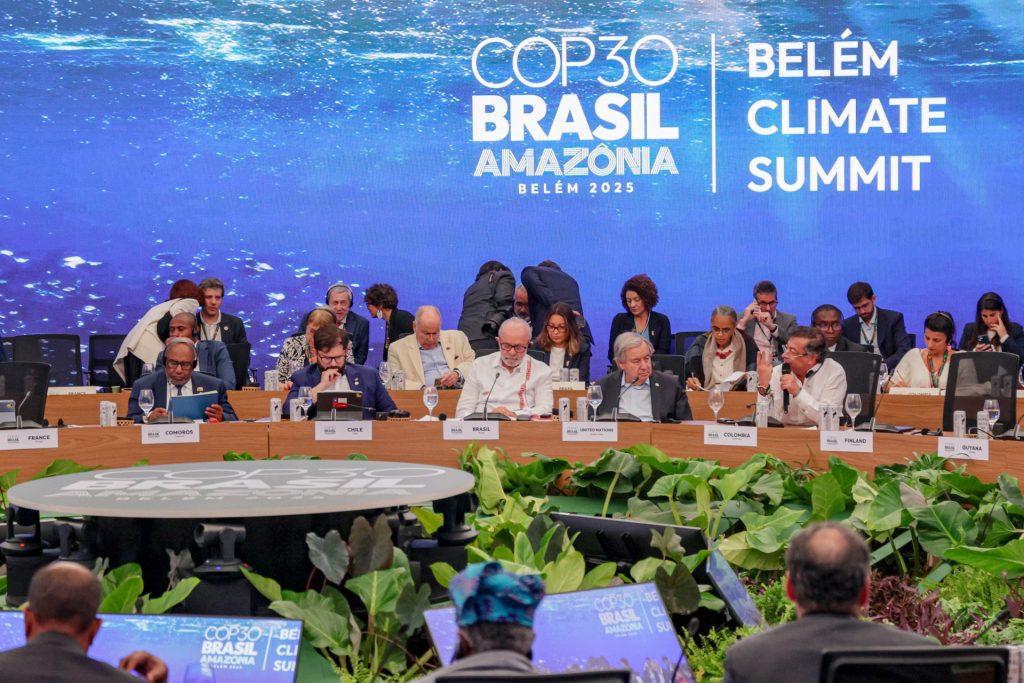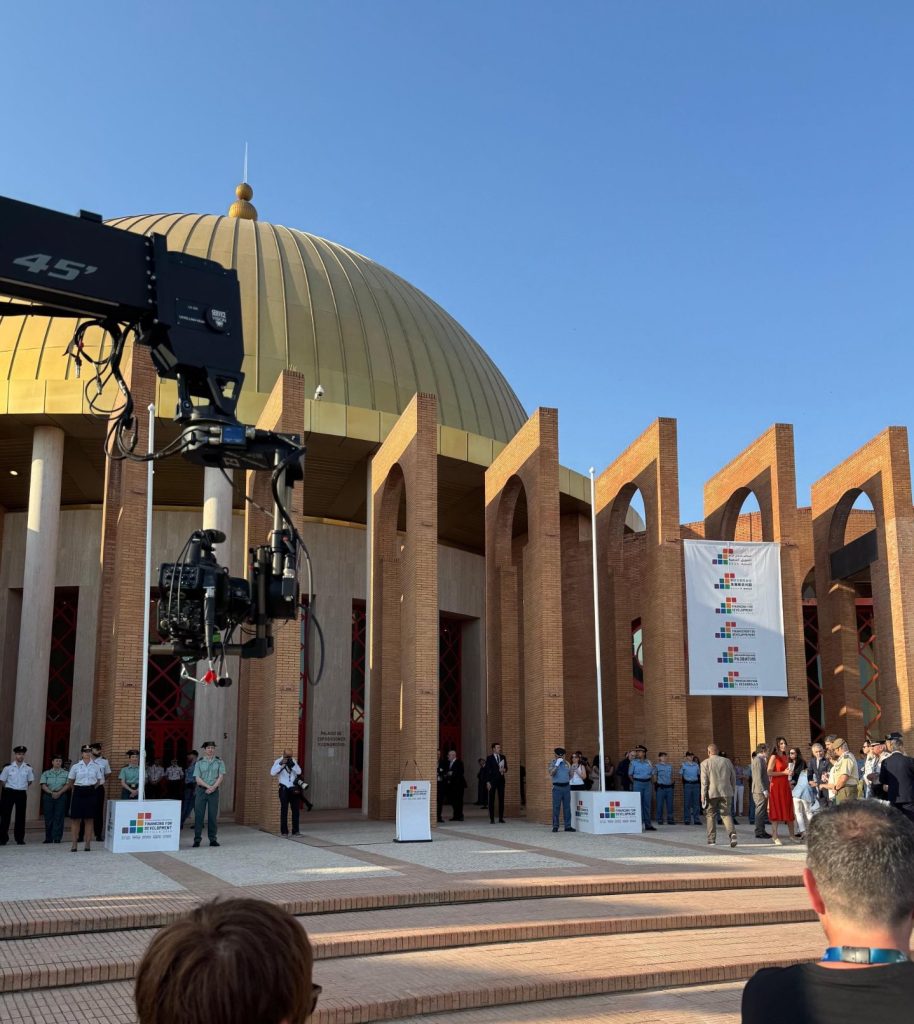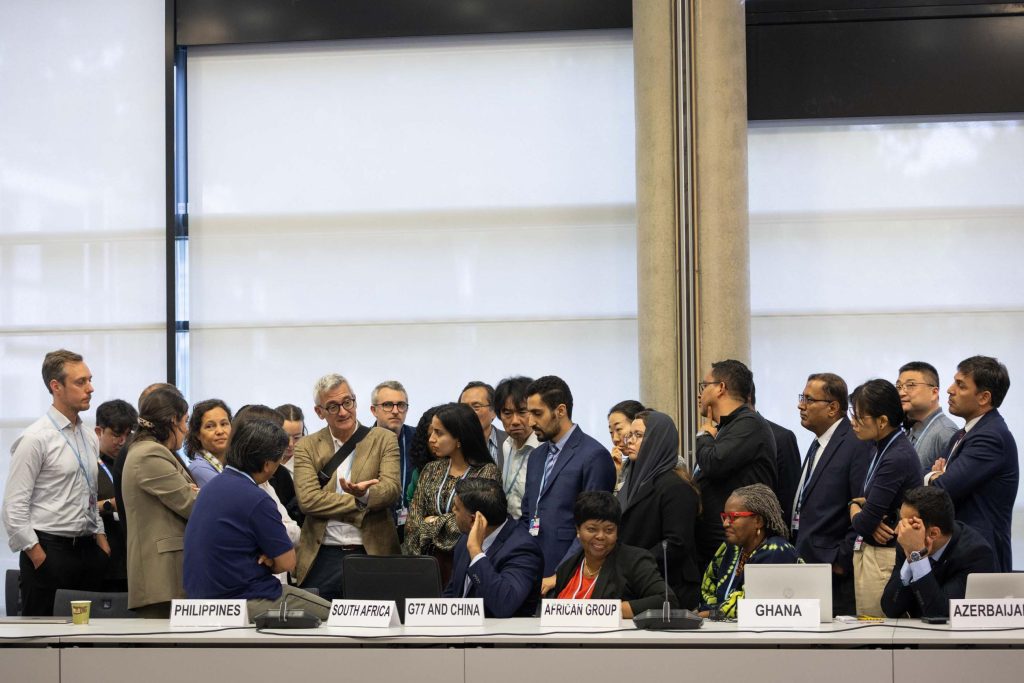After President Ajay Banga’s Financial Times epistle aimed at repositioning the World Bank as an institution that didn’t do charity, but rather aid reform for private sector development, and for private capital to find new frontiers, it was clear that this year’s Spring Meetings, would be underwhelming in respect of climate action. Questioning the rationale behind the decade held ‘billions to trillions’ narrative driving capital mobilisation for development including climate action, Banga suggested that private capital was never on the sidelines, and that it only deployed where conditions were right. He then set the tone on a jobs and energy focused strategy, which happen to have shaped this year’s Spring meeting’s agenda, with no high level meeting on climate – a central issue for Africa’s development.
The World Bank has always promoted employment as a priority. In its new narrative, it argues that a gap of 800 million jobs need to be closed over the next decade. The identified pathways to do so include reform of business-friendly policies, simpler regulations, quality public infrastructure, and access to electricity and digital technologies. If jobs are expected to be a part of the Bank’s DNA, as indicated by Banga, the jobs must certainly be green jobs. Not because it is the right thing to do, but the demand for green economy skills have increased by more than 40 percent since 2015, while the workforce reportedly holds only 13 percent of the needed skills.
In Africa, the International Monetary Fund’s projected jobs gap is about 100 million, out of which the International Labour Organization suggests that the green economy could generate about 60 million jobs by 2030. Thus, a continual prioritisation of climate action, backed by the needed investments, will contribute significantly to job creation in Africa, while simultaneously dealing with climate action.
How the US is influencing the IMF and World Bank Climate Finance Retreat
However, in a scathing critique, US Treasury Secretary, Scott Bessent argued that the IMF’s true value proposition in financial architecture reform should not be how much it lends out to support climate change (and other social issues), but rather its prioritisation of economic stability and growth. In doing so he affirmed the adage: when a hyena wants to eat its children, it first accuses them of smelling like goats. Bessent expressed similar views on the World Bank’s climate finance leadership, calling it a distortionary target, which must be sacrificed on the altar of growth and poverty reduction, through among other things, expansion in energy access.
Kristalina Georgieva – Managing Director of the IMF could only agree with Bessent on the need for the fund to focus its spending, when she took her turn to present the global policy agenda for 2025. She doubled down on the fact that the IMF’s mandate was to help countries deal with fiscal, monetary and financial sector policies, and downplayed climate change’s role in the mandate of the Fund. She emphasised that even countries hit with extreme weather events can only receive balance of payment support, and that the Fund, going forward, will narrow its focus. This undermines the IMF’s own acceptance that climate change is a macro-critical risk and associated climate strategies. It also runs contrary to its interim assessment of its Resilience and Sustainability Trust Fund less than a year ago, where it indicated that, the climate change focus of the fund was welcome by members. At the time it agreed that disbursements to Carbo Verde, Rwanda and other countries resulted in creation of long-term structural buffers that strengthened their ability to face shocks. This flaky approach will weaken efforts at recovery for countries at risk of climate change, given that the instrument compliments other economic reforms aimed at growth. Georgieva also said that the directives from the U.S. Treasury Secretary would be discussed with representatives the IMF’s 190 members.
The US$50billion blind spot – Why Energy Compacts Alone Cannot Solve Africa’s Climate Crises
A glimmer of hope came through in the World Bank’s Mission 300 – which aims to mobilise investments to increase energy access to 300 million people in Africa, which received an endorsement from the US Treasury Secretary. The Bank will leverage US$30billion in IDA funds in support of its objective, and the Mission’s partners have also pledged more than US$50billion to support energy access. Some African countries – Chad, Cote d’Ivoire, DRC, Democratic Republic of Congo, Liberia, Madagascar, Malawi, Mauritania, Niger, Nigeria, Senegal, Tanzania and Zambia, have signed new National Energy Compacts under this agenda.
However, for each of these countries, climate change goes beyond the energy sector. This renders the binary framing of energy access and broader climate issues counterintuitive, if the creation of sustainable jobs is the ultimate target. For instance, in Madagascar, which is beset by low growth and high poverty levels, adaptation and resilience building are considered an imperative for any return to growth and ultimately poverty reduction. Key areas of investments to achieve this include its blue economy, infrastructure for climate resilient cities, resilient transport systems, with an estimated cost of about US$3.37billion by 2030. This need cannot be framed in opposition to a narrow energy security challenge under the energy compact.
In Nigeria, the direct economic damage of climate averages US$6.6billion per annum in the south of the country alone, cutting across agriculture and food security, water and energy sectors. Given that the poor are mostly impacted by extreme events, framing the jobs and poverty eradication narrative purely as a dichotomy between climate action and energy security under the newly signed US$15.5 billion energy compact, could be misleading and undermine long term recovery and poverty alleviation efforts.
In Zambia, the projected loss of 4 to 6 percent of GDP by 2045 will negatively impact agriculture, transport and roads infrastructure, and energy sectors. Under a new green growth strategy, the country requires about US$11.4 billion by 2030 to invest in waste management and prevention, agriculture, and energy systems. Curiously, its compact agreement puts the power sector costs alone at US$11.9billion with private capital expected to mobilize US$9.5 billion. Never mind that the country is one of many struggling with debt service costs, with new evidence indicating that public private partnerships (PPPs) and blended finance tools are secretly fuelling a silent debt crises.
Africa Must Reject False Choices and Demand Broader Integrated Climate-Energy Solutions
The change in approach by the World Bank and the IMF, broadly reflect changes in US policy based on its strategic geopolitical considerations. Voices of global south leaders such as Ghana’s Dr. Asiama – Governor of the Central Bank, who called for an improvement in climate resilient instruments, did not resonate enough. The Intergovernmental Group of Twenty-Four on International Monetary Affairs and Development (G-24), which coordinates the positions of developing countries on monetary and development issues within the IMF and World Bank, also appears to have acquiesced to the approach. Its secretariat indicated that climate action which is tied to natural resource exploration that form part of energy transition strategies may receive support.
This retreat from climate action risks undermining global forums such as COP30 and the G20, where South Africa’s leadership will be crucial in advocating for equitable climate finance. A weakening of multilateral support for climate adaptation and mitigation could leave African countries without the necessary financial mechanisms to build resilience. Although the World Bank’s Mission 300 initiative to expand energy access is commendable, its narrow focus on electrification risks sidelining broader climate adaptation needs, such as resilient infrastructure, sustainable agriculture, and blue economy investments.
The push for ambitious plans by African countries should be balanced against the possible contention with a global financial architecture increasingly misaligned to Africa’s needs. The outcomes of the Spring Meetings signal a worrying trend—one that could weaken climate commitments at COP30, dilute the influence of Global South leadership in forums like the G20, and entrench a system where short-term economic priorities override long-term planetary and developmental stability, leaving Africa to bear the brunt of this myopia.





